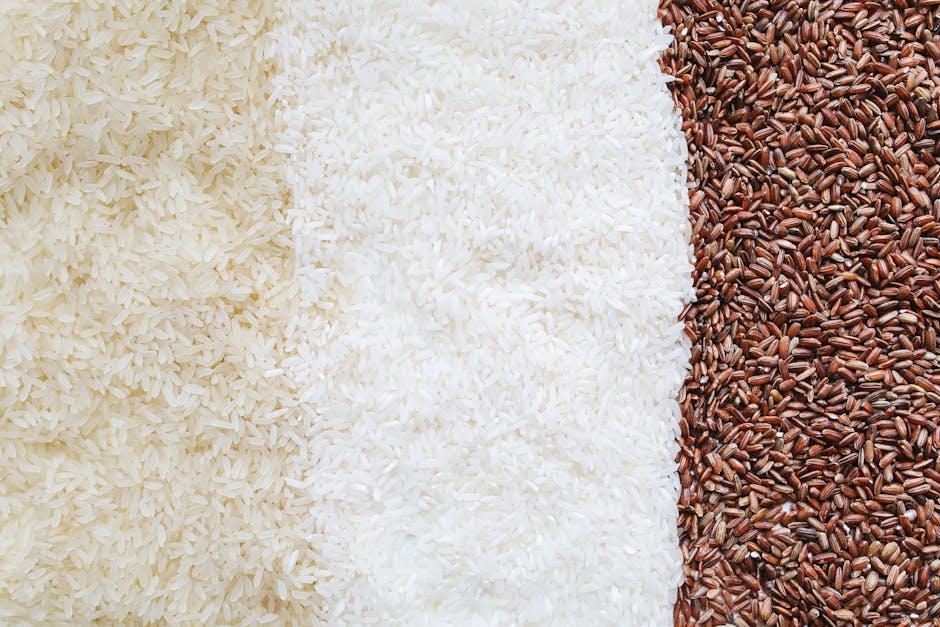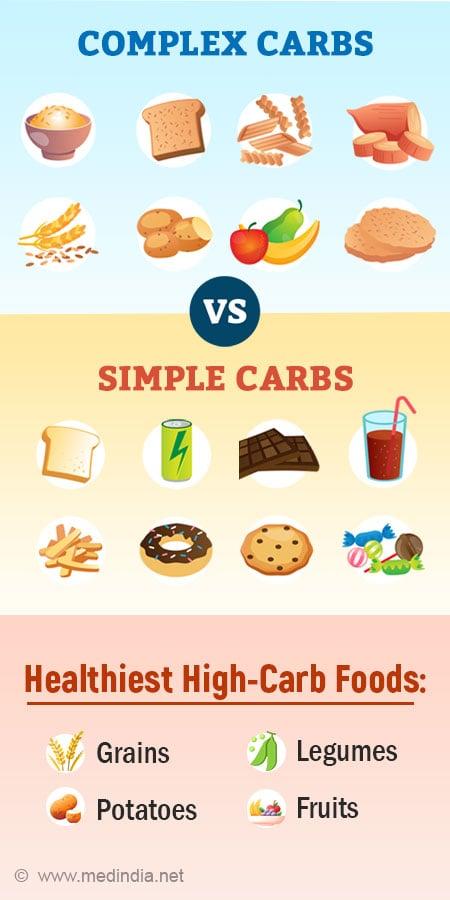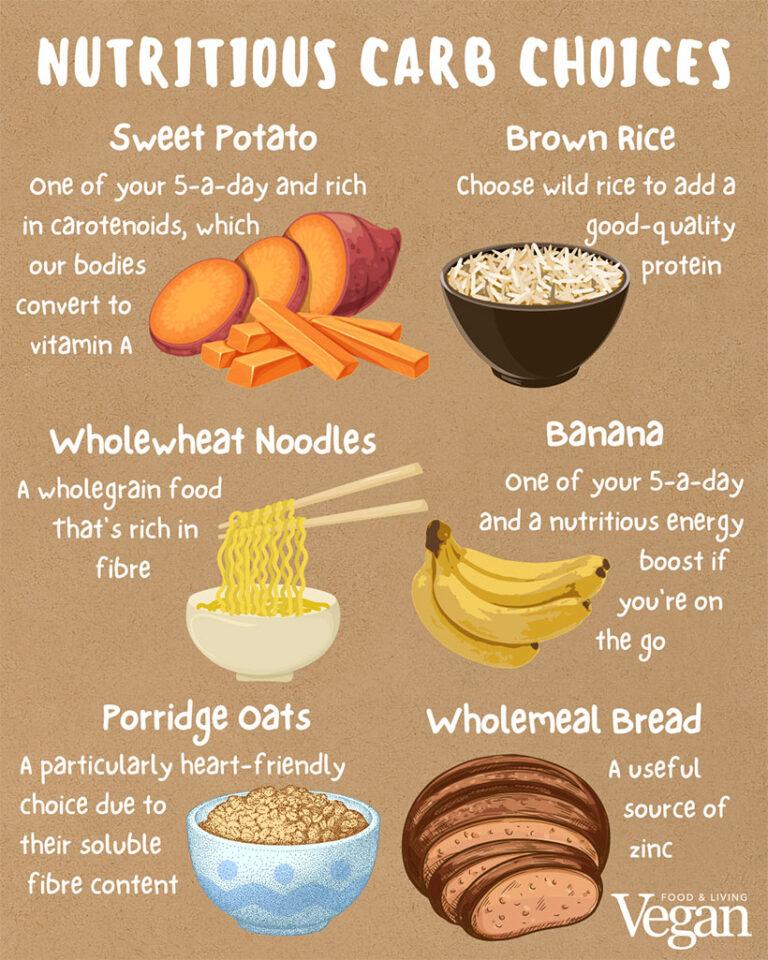In the quest for a healthier lifestyle, understanding the role of carbohydrates in a balanced diet is essential. Often misunderstood and sometimes unfairly vilified, carbohydrates are a crucial component of our nutritional needs. As we navigate the complex world of dietary choices, it’s important to approach the subject with empathy and clarity. Carbohydrates provide the energy our bodies require to function optimally, supporting everything from basic cellular processes to fueling our most vigorous activities. In this article, we will explore the different types of carbohydrates, their functions, and how they can be thoughtfully integrated into a balanced diet that supports overall well-being. By demystifying carbohydrates, we aim to empower you to make informed decisions that align with your health goals, acknowledging that every individual’s journey is unique.
Understanding Carbohydrates: Types and Their Functions
Carbohydrates are often misunderstood, yet they are a fundamental part of a balanced diet, providing the primary source of energy for our bodies. Understanding the different types of carbohydrates and their functions can help us make healthier dietary choices. Carbohydrates can be broadly categorized into three types:
- Sugars: These are the simplest form of carbohydrates, found naturally in fruits, vegetables, and dairy products. They provide quick energy but should be consumed in moderation, especially refined sugars.
- Starches: Found in foods like bread, pasta, and potatoes, starches are complex carbohydrates that take longer to break down, providing a more sustained energy release.
- Fiber: Unlike sugars and starches, fiber is not digested by the body. It is crucial for digestive health, helping to regulate the body’s use of sugars and keeping hunger and blood sugar in check.
Here’s a brief overview of how these carbohydrates function in our diet:
| Type | Function |
|---|---|
| Sugars | Provide quick energy; enhance taste of foods |
| Starches | Supply prolonged energy; improve satiety |
| Fiber | Promote healthy digestion; support heart health |
Incorporating a variety of carbohydrates in your diet is essential. Focus on whole, unprocessed foods to maximize the nutritional benefits. Balance is key, so pair carbs with proteins and healthy fats to create satisfying and nourishing meals. Understanding the role of each type of carbohydrate can empower you to make choices that enhance your overall well-being.

Balancing Act: How to Integrate Carbohydrates into Your Daily Meals
Integrating carbohydrates into your daily meals can seem daunting, but with a few strategic choices, it becomes an achievable and rewarding task. Start by focusing on the quality of carbohydrates. Opt for whole grains like quinoa, brown rice, and oats instead of refined grains. These options are not only rich in fiber but also in essential nutrients that help stabilize blood sugar levels and keep you full longer.
To make the process easier, here are some simple tips:
- Incorporate a serving of whole grains in your breakfast, such as oatmeal or whole-grain toast.
- Add legumes or starchy vegetables like sweet potatoes to your lunch or dinner.
- Swap sugary snacks for fruits like apples or berries.
| Meal | Carbohydrate Source | Benefits |
|---|---|---|
| Breakfast | Oatmeal with berries | High in fiber and antioxidants |
| Lunch | Quinoa salad | Rich in protein and essential amino acids |
| Dinner | Sweet potato mash | Excellent source of vitamins A and C |
Remember, moderation is key. Carbohydrates should make up about 45-65% of your total daily calorie intake, according to dietary guidelines. By choosing the right types and amounts, you can enjoy your meals while nourishing your body effectively.
Recognizing the Signs: When Your Diet Needs More or Less Carbohydrates
Understanding when your diet requires an adjustment in carbohydrate intake can significantly impact your overall health and well-being. Here are some key indicators that might suggest you need to tweak your carb consumption:
- Feeling Constantly Fatigued: If you’re experiencing low energy levels despite adequate sleep, it might be a sign your body is not getting enough carbohydrates, which are essential for energy production.
- Unexpected Weight Gain: Consuming too many carbs, especially refined ones, can lead to weight gain. Monitor portion sizes and opt for complex carbs like whole grains and vegetables.
- Cravings for Sugary Foods: A sudden increase in cravings might indicate your body is asking for more energy, which can often be fulfilled with healthier carb options.
Additionally, it’s crucial to listen to your body’s signals and adjust your diet accordingly. Here’s a simple table to help you identify the signs and potential adjustments:
| Sign | Potential Adjustment |
|---|---|
| Lethargy | Increase whole grains |
| Bloating | Reduce refined carbs |
| Mood Swings | Balance carb intake with proteins |
By paying attention to these signs, you can better tailor your diet to your body’s needs, ensuring you maintain a balanced and healthy lifestyle.

Practical Tips: Choosing Healthy Carbohydrate Sources for Optimal Health
Incorporating healthy carbohydrate sources into your diet is crucial for maintaining energy levels and supporting overall health. When choosing carbohydrates, focus on options that are rich in nutrients and provide sustained energy. Here are some practical tips to guide you:
- Whole Grains: Opt for whole grains such as quinoa, brown rice, and oats. These grains are packed with fiber, vitamins, and minerals, helping to keep you fuller for longer and supporting digestive health.
- Fruits and Vegetables: Include a variety of colorful fruits and vegetables in your meals. They are not only excellent sources of carbohydrates but also provide essential antioxidants and phytonutrients.
- Legumes: Beans, lentils, and chickpeas are great plant-based sources of carbohydrates. They are high in protein and fiber, making them an excellent choice for maintaining balanced blood sugar levels.
| Carbohydrate Source | Key Benefits |
|---|---|
| Whole Grains | Rich in fiber, vitamins, and minerals |
| Fruits and Vegetables | High in antioxidants and phytonutrients |
| Legumes | Excellent source of protein and fiber |
Remember, moderation is key. While it’s important to focus on healthy sources, maintaining portion control ensures you get the benefits without overconsuming calories. Listen to your body and adjust your intake based on your energy needs and activity levels.








































